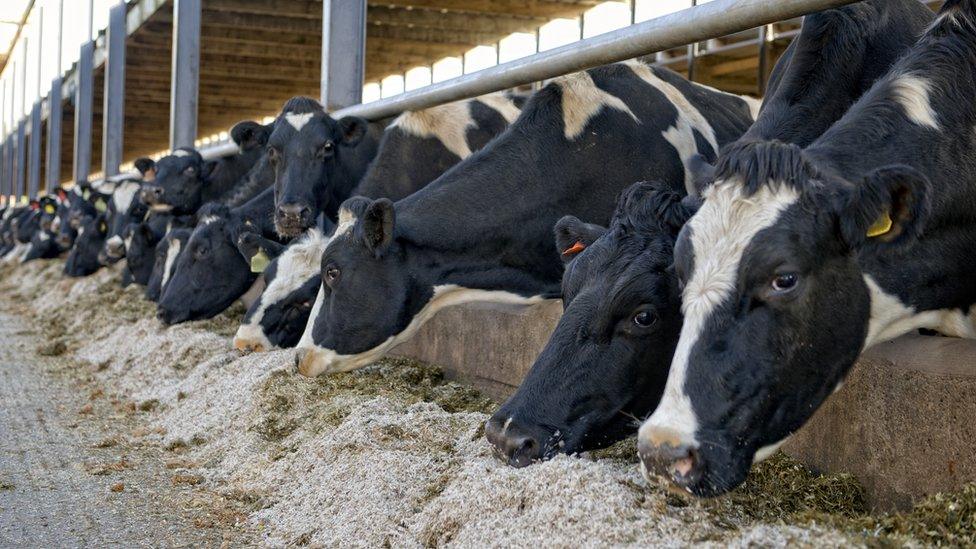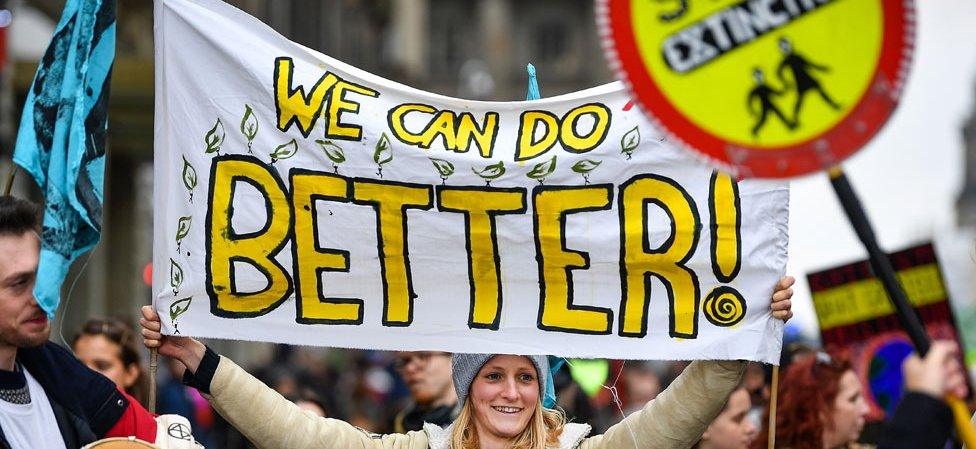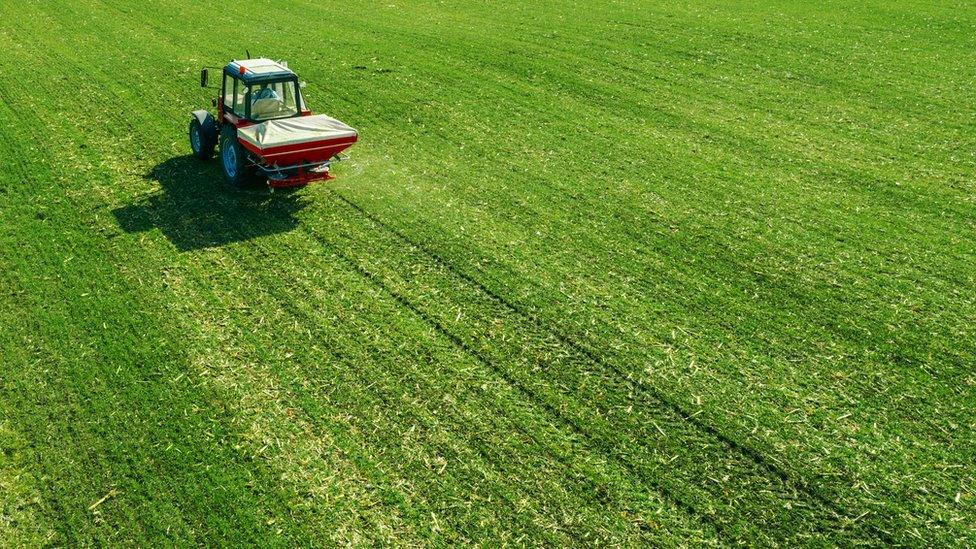Farmers could 'comfortably' cut emissions by a third
- Published

The study suggests using additives in cattle feed
Scotland's farmers could "comfortably" reduce their emissions by 38% over the next 25 years using established technologies, a report has claimed.
The study for WWF Scotland, external said farm level and system-wide changes could see greenhouse gas emissions fall by the equivalent of 2.9 million tons of CO2.
It suggests cutting the use of nitrogen fertiliser in the soil and using additives in cattle feed.
But it warns added expenditure could be prohibitive without financial support.
The Scottish government has said achieving net-zero emissions by 2045 will require effort from all industries including agriculture.
The farming sector has been under increasing scrutiny worldwide over levels of emissions, particularly methane from livestock.
In Scotland, agriculture is the second highest cause of greenhouse gases after transport and is responsible for 23.9% of all emissions.
But the sector has also suffered from some of the impacts of climate change by experiencing more extreme weather events.
The Beast from the East cold spell in the winter of 2017/18 cost farmers an estimated £161m because of lower crop yields and livestock losses.

What does net-zero mean?

The terms carbon neutral and net-zero are often used interchangeably but there are differences.
Carbon dioxide (CO2) is the most abundant greenhouse gas but there are others which the Scottish government counts and they are not all carbon-based.
Therefore, some climate change campaigners prefer the term net-zero as it includes not just CO2 and methane but also nitrous oxide, which is emitted during agricultural and industrial activities as well as from fossil fuels.
Simply being carbon neutral would not stop global warming because these other gases are also harmful to the atmosphere.
Perhaps an even better term would be "climate neutral".

Dr Sheila George, food and environment policy manager at WWF Scotland said agriculture be part of the climate solution.
"Our land is our biggest natural defence against climate change and farmers and other land managers have a key role in protecting it," she said.
"We need to produce food in a way that reduces emissions and locks up more carbon.
"By adapting our farming methods, Scotland could be at the forefront of the global transition to climate-friendly farming with unique export and branding opportunities arising."
Organic farming
The report advocates more organic farming along with increased agroforestry, where trees are planted alongside farmed land.
Despite their combined potential for significantly reducing net-emissions, it adds that high initial investment costs are a barrier.
A system-wide approach is therefore needed, it suggests, to incentivise change.
Ruth Taylor, climate change policy manager at NFU Scotland said: "Climate change is a critically important issue for Scottish agriculture, and it is vital that farmers are part of the solution to climate change.
"Any policy introduced to tackle climate change must consider the long-term sustainability of farming and food production in Scotland.
"The introduction of a suite of measures to mitigate climate change will be important - it is clear that there will be no 'one-size-fits-all' solution to reducing emissions from agriculture."

Cutting the use of nitrogen fertiliser in the soil could help
While carbon dioxide emissions are relatively low in agriculture, methane levels are high because of gases emitted by ruminating cattle.
The report says using additives in food could reduce overall emissions by 10% of the target within a decade if done widely.
A Scottish government spokesman said: "The sector already has a positive story to tell, having reduced greenhouse gas emissions by 29.4% since 1990 and helping to plant trees, restore peat, improve water and soil quality and generate renewable energy.
"However, Scotland's commitment to transition to a net-zero society by 2045 will require additional effort from everyone, and this of course includes our agricultural industry."